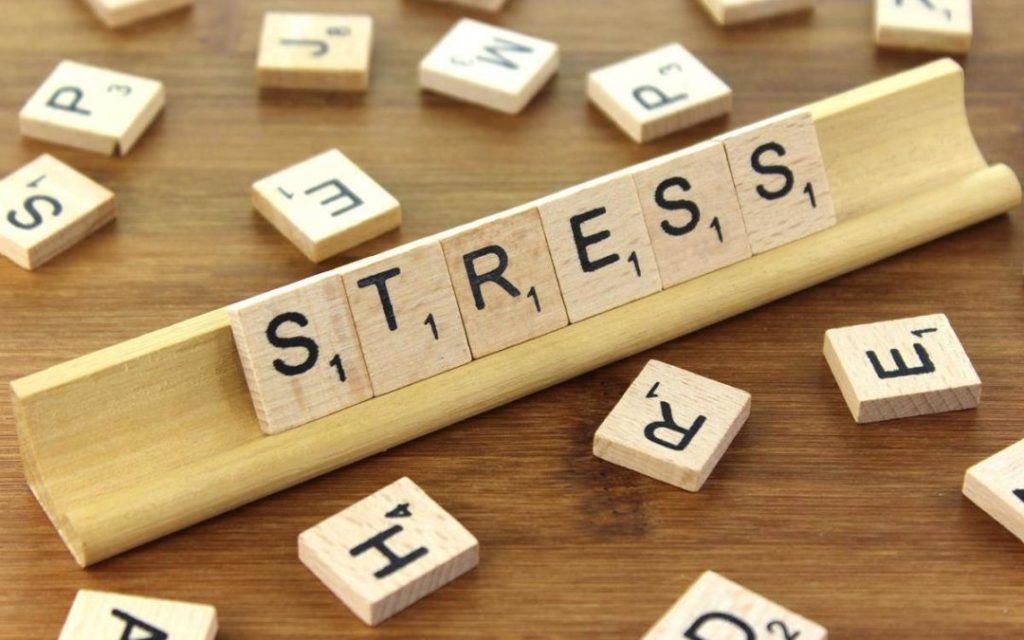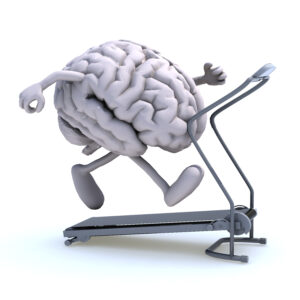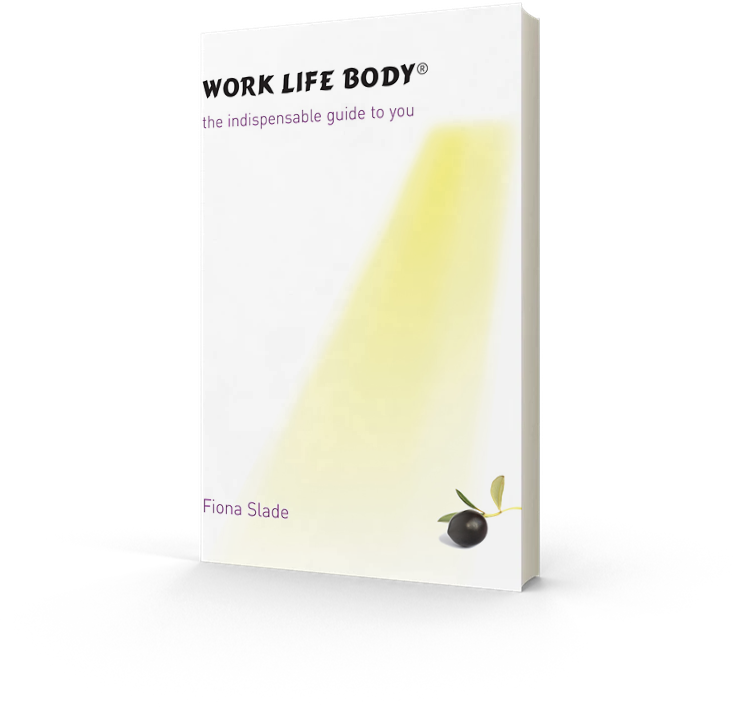Stress, one of the most natural responses in the world. Most of us wouldn’t be here without it. One of the oldest, most primitive parts of our brain is looking out for us all the time, constantly scanning for dangers and threats. Stress instincts help a lot of the reflexes we rely on everyday – famously crossing the road without getting run over, catching the falling glass that is about to hit the deck, quick reactions in sports or all manner of emergencies and stressors that we encounter. The thing is these emergencies can be real, potential or imagined. These days it is easy to be on red alert because of something, most of the time.
So what do we have to rationalise that? Well, an extensive brain full of wisdom, experience and the ability to think and innovate – intelligence. What we discover only too often is that this ability to rationalise frequently comes into the category of easier said than done. If we can afford a minute or two of thought and rationalisation, some of these threats and stressors may not be as bad or as urgent as the first impression. The times when we most need to be thoughtful, logical and rational – is when the instinctive, un-thought-through reactions can be strongest. So whenever we can, 1 or 2 minutes of rational thought will be one of the most powerful things we can do.
How best to protect the mechanism that can protect you
Looking after the brain should also follow a logical path. It is one of the highest users of nutrients and energy in the body – so good raw material and fuel is one of the most helpful things we can do. Good nutrition will include carbohydrates of the slow-release variety, good proteins, good oils and fats, nutrients, vitamins and minerals. Most foods, including fruit and veg have carbohydrate, so it isn’t difficult to include carbs in the diet. The additional carbs we choose, grains, pasta, potatoes need to be as natural and unprocessed as possible to avoid the fast-release sugar spikes – and significant slumps/crashes. We will benefit from foods as natural as possible because they are most easily digested and the nutrients absorbed – and create less debris and toxic debris. We also need to listen to our bodies, they are always telling us something. Bad food choices will cause pain, lack of concentration, weight gain and even anxiety. Your body will also tell you if some foods, or the quantity of food you ate caused sleepiness, lethargy or bloat and discomfort. Digesting and processing proportionate meals will divert less energy away from all the other things you are doing.
Water, walnuts, celery, carrots, avocado, dark berries and very high cacao-content dark chocolate – have all been cited in research and studies as brain friendly foods. They supply fibre, carbs, fats, oils and antioxidants – and variety. Variety is important as it is by far the easiest way to incorporate the best range of vitamins and minerals.
| Carbohydrates | Proteins | Fats and Oils | Vegetables and Fruit |
| In the normal way, most of us don’t need too many additional carbs (ie: small portions).
Wholemeal grains: rice millett oats bread pasta potatoes |
Unprocessed meats and fish
Oily fish: trout, salmon, sardines, mackerel, pilchard, herring Beans green beans, kidney beans, borlotti, cannellini – and all the others Pulses chickpeas, lentils – and all the others |
Nuts
Seeds Avocados Pressed Extra Virgin Olive Oil Butter |
Generous portions of as varied veg and fruit as possible
esp green leafy veg fruit of different colours cabbage, spinach, broccoli, courgettes, celery, carrots, peas green, red, yellow peppers butternut and all squash |
Extravagant or indulgent meals can have a place (not too often) – but not when you need your operating system to be on top form. Likewise quick, low quality meals and snacks and fast foods. If the meat or cheese, the sauces/gravy and the wraps/pastry are all processed, which they probably are – there isn’t much food there and there is a lot of load. All that has to be dealt with and are obstructing the system rather than helping.
Exercise is also marvellous for the brain. Most findings have come from studies of aerobic exercise which increases heart rate and pumps more oxygen to the brain. There are not so many studies available on resistance training but the popular answer is a combination of both. A combination of aerobic exercise with other activity and training will not only look after brain health and cognitive function but also improve cardiovascular and cardiorespiratory fitness, muscle strength and flexibility and reduce the risks of diabetes and hypertension. All in all, we were meant to be active. We were designed to spend as much time on physical work as mental work (well more – but a lot has changed). Whilst our thinking brains have developed astonishingly and led us into occupations that make the most of those skills, it is often at the cost of the physical fitness which keeps us well. Without needing to become fanatical or obsessive about it, it is most certainly good for us to maintain good levels of physical ability which in turn sustains our mental ability.
Flexibility is one of the key components of this mental and physical health. Keeping physical health, muscles, cardiovascular health, cell health good – will keep the body supple and flexible. It also enables mental flexibility – the ability to cope with change and challenge. In times of high demand or when things are suddenly sprung upon us – there are often very strong triggers for instant reaction, ie: un-thought-through reaction. We have an impressive ability immediately to leap to a conclusion – and stick to it. Survival today means being aware of instinctive reactions and considering them – but making sure that we remember we have choices. Is this the best way to react right now? – and leaving options open. We need to do this, right now – and constantly review and monitor – and adapt and change. Getting stuck or sticking to things whether helpful or not, is not intelligent – it is not making use of the considerable brain power we have. There is nothing wrong with making a decision, implementing it, consulting, reviewing, monitoring and . . . changing your mind. That’s intelligent – that is using the capability, strengths and skills we are born with.
Consultation and support networks
Our other immense stress protection is consultation with others and having support networks. These can be work colleagues, mentors, family, friends, trusted confidantes and professionals. When taking difficult decisions and forming strategies, letting others know what you and they are doing and why, makes a world of difference. Inclusion and engagement win friends and influence people. Some decisions and plans of action can be solitary. Wherever possible have a trusted point of contact. Internalising anxiety and pressure takes a toll. This day and age we should all have that contact or those contacts in place. Hopefully they are there – but if not, they can be arranged. The world is full of consultants who either have expertise in what you are doing or who have listening skills. They may simply be able to help you establish the support network you need. Suffice to say, don’t plan to go it alone – there must be someone!
Short bursts of pressure shouldn’t cause problems – we have always had those and are designed to cope with them. As we hear all too often, the problems arise with sustained, long drawn out pressures. We can operate on overdrive, we have that capacity – but we are not meant to stay there long term. Doing so will require your body and brain to make compromises and that is when supporting that high level function can have associated repercussions; skin, digestion, sleep, immune system . . . and that isn’t going to help.
Stress is affected by anxiety, workload, sleep, energy level, diet, lifestyle, exercise, health, mood, motivation. The best solutions come from within. The mechanisms to deal with and process stress are available to us. Learning techniques to operate in the intellectual parts of our brain helps adopt positive, constructive solutions – and time management – which so often underlies our ability to cope and our resilience.
If you have any further question regarding Successfully Minimising Effects of Stress, then please contact us here.





